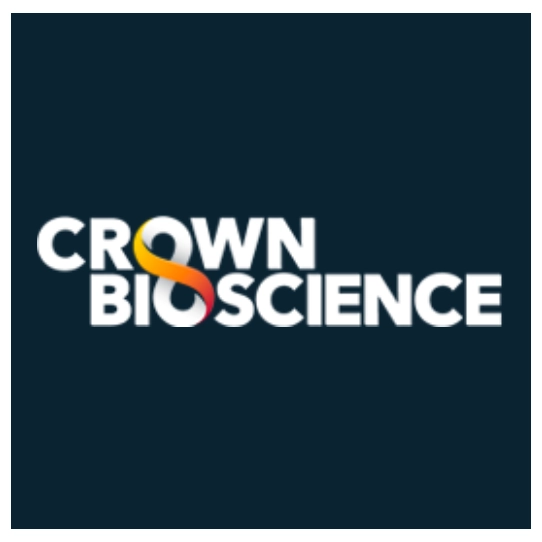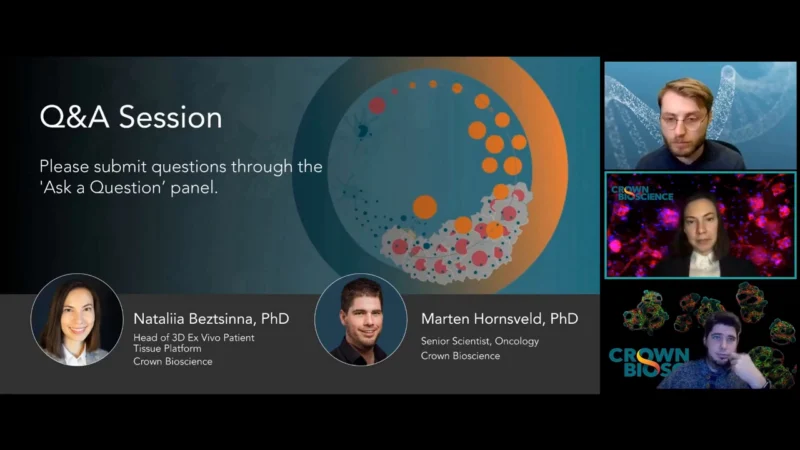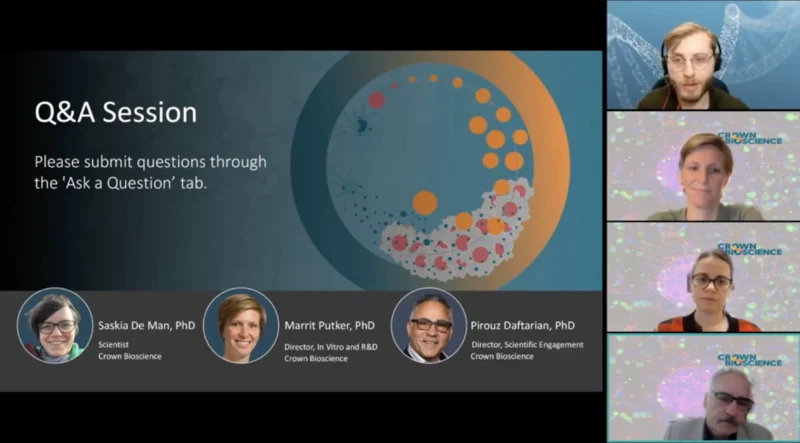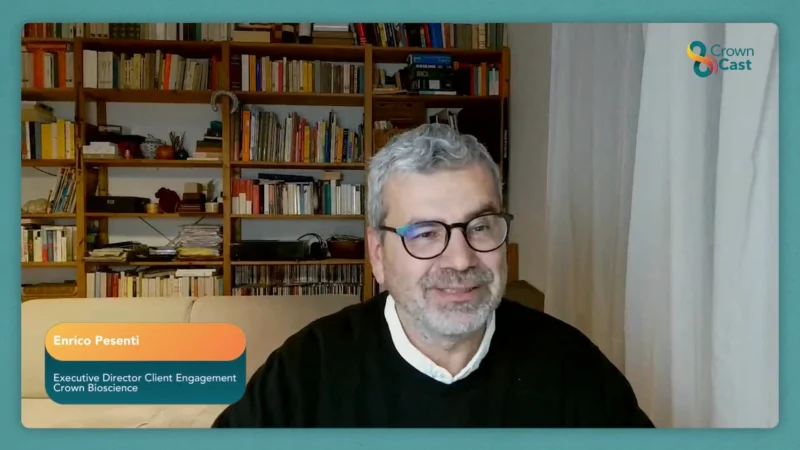Advanced In Vitro Technologies to Investigate Therapeutic Impact on the Cancer Immunity Cycle
As immunotherapy revolutionizes cancer treatment, the need for physiologically relevant preclinical models becomes more urgent than ever. Despite the success of immune checkpoint inhibitors, a large majority of patients fail to achieve long-lasting responses, prompting researchers to explore more complex and predictive assays. The cancer immunity cycle, first described in 2013, remains a central framework to understand therapeutic interventions, and new technologies now allow scientists to dissect this intricate process step-by-step.
How can in vitro technologies like organoids, 3D cultures, and high-content imaging enhance our understanding of the cancer immunity cycle and better predict clinical success?
In this episode of Crown BioScience, hosted by Liam Sanio, Senior Project Manager at Scientist.com, guests Dr. Rajendra Kumari and Dr. Gera Goverse from Crown BioScience explore the evolution of in vitro assay systems designed to interrogate immune-oncology therapies. The discussion spans from traditional 2D models to cutting-edge 3D organoid platforms that simulate the native tumor microenvironment, emphasizing their translational potential and role in optimizing drug development.
Key Discussion Highlights:
-
The cancer immunity cycle’s complexity demands diverse therapeutic targets and multi-step intervention strategies.
-
Advanced in vitro assays, including organoids and ex vivo patient-derived models, offer higher physiological relevance and scalability than traditional 2D assays.
-
3D co-culture platforms and high-content imaging technologies enhance evaluation of immune cell infiltration, migration, and tumor killing efficacy.
Dr. Rajendra Kumari is the Executive Director of Integrated Solutions at Crown BioScience, with a PhD in molecular oncology. She has deep expertise in the development of translational platforms and integrative strategies in immuno-oncology.
Dr. Gera Goverse is Director of Immuno-Oncology at Crown BioScience. Holding a PhD in immunology, she focuses on developing innovative in vitro systems that mimic the immune interactions within tumor environments, advancing preclinical therapeutic validation.




